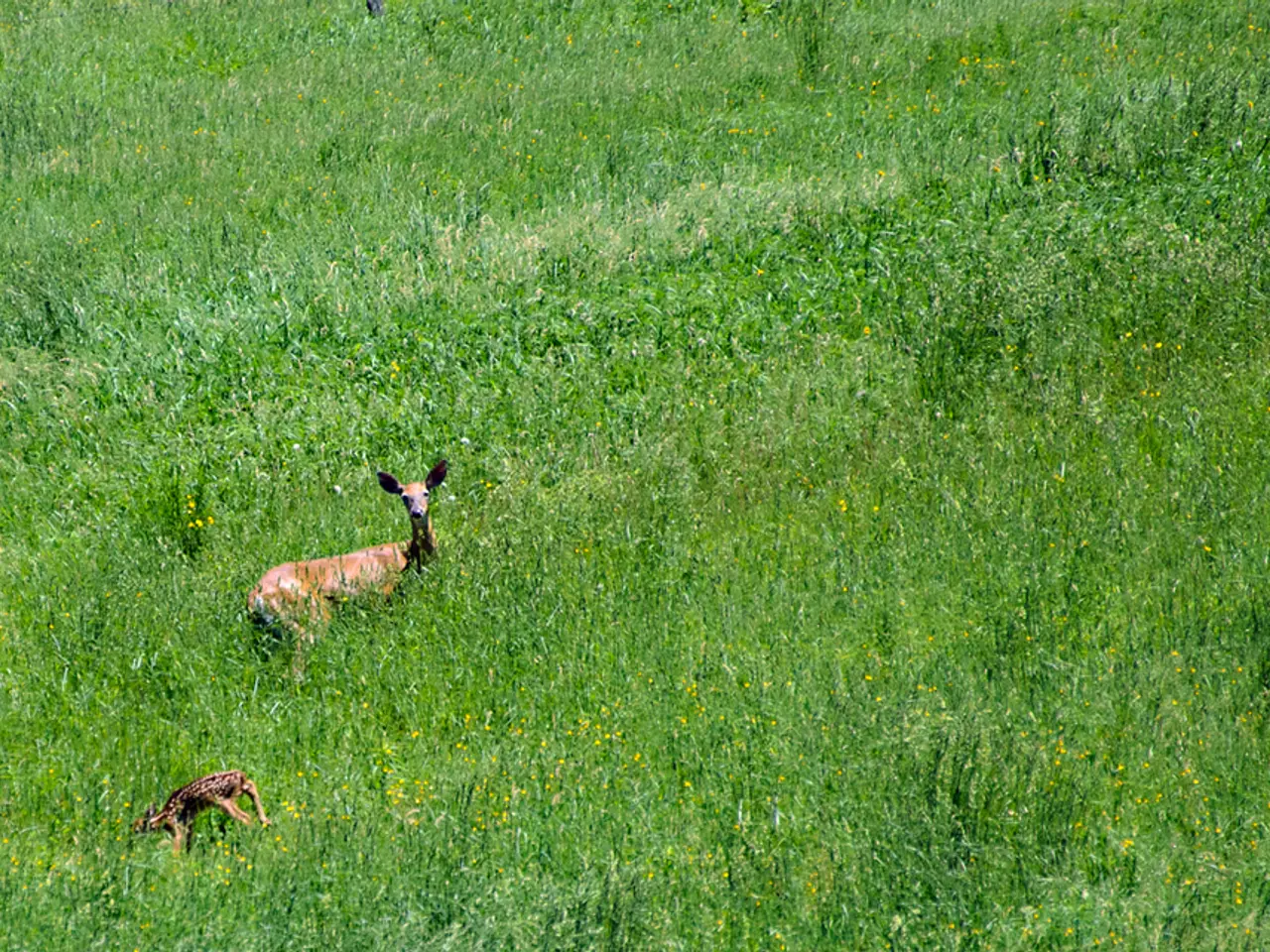Exploring the Connection: Joe Harkness's "Neurodivergent, By Nature" Delves into Why Individuals with Autism Feel a Deep Bond with Nature
The connection between neurodivergent individuals and conservation work is a mutually beneficial relationship that is gaining recognition. This synergy is rooted in the practical nature of conservation roles, the inclusive culture of the sector, and the alignment of these roles with the needs and values of neurodivergent people.
Many neurodivergent individuals are drawn to conservation and outdoor roles because these roles often involve hands-on, practical work that engages both body and mind. This aligns well with diverse learning and working styles common among neurodivergent people. The conservation sector has been relatively proactive in recognizing and responding to the needs of neurodivergent staff and volunteers, creating more accommodating and supportive workplaces. Organizations such as ZANE actively promote inclusivity within zoological and conservation environments, advocating for equitable opportunities and creating cultures of belonging for neurodivergent professionals.
Conservation roles may also appeal due to workforce culture, which tends to be younger, socially liberal, and often more open or safer for people who may feel marginalized elsewhere.
The natural environment provides significant benefits to neurodivergent individuals. It serves as a safe space and an escape, offering a sensory-friendly environment that can calm and co-regulate an overwhelmed nervous system. Exposure to green spaces and nature reduces activity in brain areas associated with rumination and negative repetitive thoughts, potentially alleviating anxiety and depression. Nature can lower stress hormone levels (like cortisol), improve heart rate regulation, and enhance emotional regulation.
Specific activities such as birdwatching, which is a particular love of Joe Harkness, encourage mindfulness and presence, helping individuals slow down, feel grounded, and reconnect with the moment. This can be particularly therapeutic for neurodivergent individuals. Working within conservation may also help meet mental health needs where direct access to and involvement with the natural world is crucial.
Joe Harkness, a teacher and author diagnosed with ADHD, has observed these benefits firsthand. He notes a change in behavior among neurodivergent students when they are outdoors, with increased care and collaboration. Harkness finds spending time in nature essential for maintaining a stable mental state, as it serves as a safe space for someone who often finds his surroundings noisy and confusing.
Harkness's book, "Neurodivergent, by Nature," explores the importance of green spaces for neurodivergent individuals and the skills they bring to conservation and the environment. The natural environment, with its predictable rhythms, offers a sense of consistency and comfort to neurodivergent individuals.
In his work as a teacher, Harkness has observed that neurodivergent students take infinite care to rescue injured wildlife when outdoors. The 'web of wild wellbeing' refers to the benefits that the natural environment provides to neurodivergent individuals. An RSPB area manager estimates that up to 30% of the charity's workforce are neurodivergent. Joe Harkness believes there is an above-average representation of neurodivergent individuals in the conservation sector.
This synergy encourages ongoing efforts to improve workplace accommodations and neurodiversity awareness in conservation-related fields. The 'cool kids' often work collaboratively with classmates they would usually ignore or belittle when outdoors, demonstrating the potential for neurodiversity to foster a more inclusive and collaborative society.
- The practical nature of conservation roles, such as hands-on, outdoor work, aligns with diverse learning and working styles common among neurodivergent individuals, drawing many to this field.
- Organizations like ZANE advocate for inclusivity within zoological and conservation environments, creating cultures of belonging for neurodivergent professionals who may feel marginalized elsewhere.
- Nature provides significant benefits to neurodivergent individuals, offering a sensory-friendly environment that can aid in the reduction of anxiety and depression, lower stress hormone levels, and improve emotional regulation.




